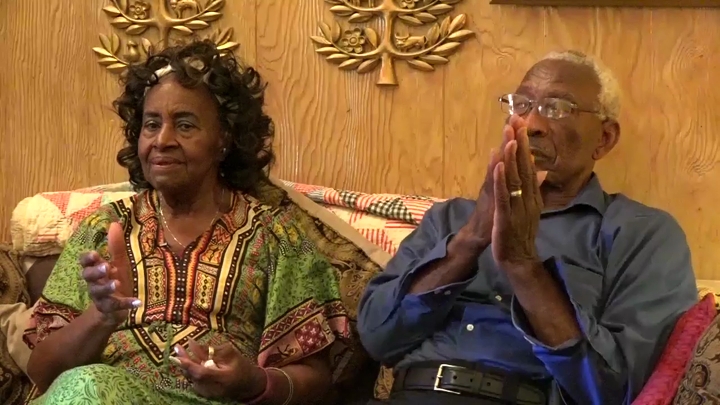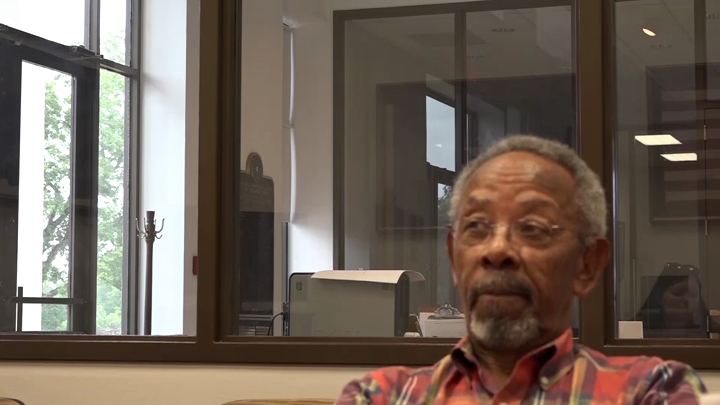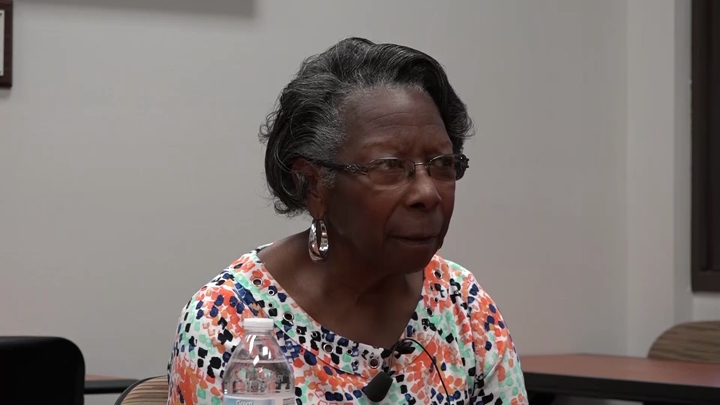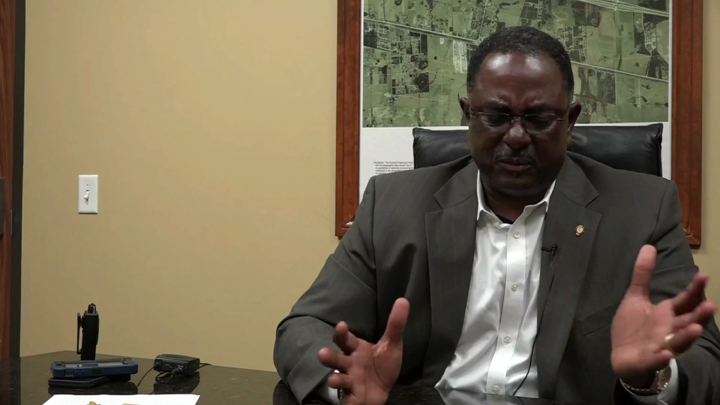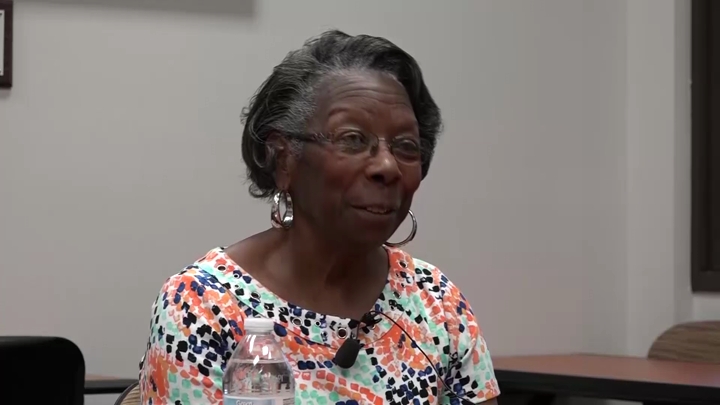Cross / Attending Prairie View A&M University
sign up or sign in to add/edit transcript
Interviewer: So how long were you in the military? Cross: Just two years. I was drafted. With volunteer you had to stay three, I think, but since—everybody in there was drafted so they didn’t have to stay but two years. That’s all I had to stay. Then, when I got out of the service, my brother was at Prairie View. So, when I got out of the service, I had the GI Bill and I said well I might as well go to college, too. So, I went to Prairie View with him. That was in 1954 and we marched together when we got our degrees. So, I went to Prairie View and I majored in business ed and minored in economics. So, I had a minor in economics and a major in business. We had a lot of experiences at Prairie View because, see, we were adults, my brother and I. So, we got in trouble for drinking in the room. So, we had to go see the dean. I asked the dean, “Where do you want us to drink? We’re adults. If we don’t want to go out and get in trouble in these clubs and things and we want to drink in our room, what can it hurt? We’re adults.” The good dean said just keep it to a minimum. Things like we were going to the Cotton Bowl and you had to have your parents’ permission to go because they had a lot of chartered busses to take everybody. So, we had to go see the good dean again. I said—I think then I was twenty-four. I said, “You want me to get my parents permission to do—” and my brother was twenty-five. He said, “Well, I’ll give you a note,” and so he wrote us a note. If you’re an adult, you’re on your own. You’re talking about your parents got to do this and that. So, he finally left us alone at the university. So, we both—we marched together. Then, my oldest daughter was born because I met my wife in Prairie View. We got married. One summer, she came to my home. It was in Madisonville, but she was working in Houston. So, she came to Mineral Wells to visit and while she was there, we got married. Isn’t that something? We got married. Then, when we got back to college we had to find us an apartment or something. Then, her junior year, she got pregnant and had her first daughter. So now we got a baby and we in college. She was raised—everybody raised her. The lady over the dorm, she would babysit for us if we had something to do. So, we got through and my first job was here in Lufkin. It was two applicants and this other applicant had all A’s on his transcript. So, the principal interviewed me and said whoever gets the contract, that’s who gets the job. So, I went back to Mineral Wells and I got the contract.
| Interview | Interview with Herbert Cross |
| Subjects | Family › Marriage |
| Family › Children | |
| Family › Extended Family Networks | |
| Work › Occupations | |
| Education › Higher Education | |
| Education › Teachers and Administrators | |
| Military › Military Draft | |
| Tags | Prairie View A&M University |
| G.I. Bill | |
| Sundown Towns | |
| Business Education | |
| sign up or sign in to add/edit tags | |
| Interview date | 2016-06-20 |
| Interview source | CRBB Summer 2016 |
| Interviewees | Cross, Herbert |
| Interviewers | May, Meredith |
| Locations | Prairie View, TX |
| Madisonville, TX | |
| Mineral Wells, TX | |
| Lufkin, TX | |
| Houston, Texas | |
| Duration | 00:04:09 |
| Citation | "Attending Prairie View A&M University," from Herbert Cross oral history interview with Meredith May, June 20, 2016, Lufkin, TX, Civil Rights in Black and Brown Interview Database, https://crbb.tcu.edu/clips/2396/life-after-the-military, accessed March 03, 2026 |


